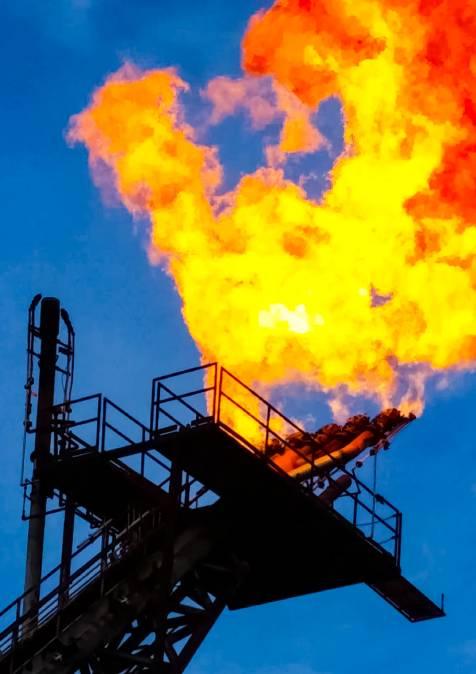Publications /
Opinion
”All is born of water, all is sustained by water" (Johann Wolfgang von Goethe, Faust II).
A colorless, odorless, transparent and tasteless liquid. Yet, the compound of oxygen and hydrogen is essential for human survival. Three to five days without H2O and life as we know it ends. Humanity is water. 60% of our body is water. No water means no future, simple as that. Without it, the body is just dust and five liters of blood, and is suddenly useless. No water in our cells, no heartbeat. The music ends. We all know the battle for survival of gallant nomads, opposed tribes fighting each other for an oasis, for the only water hole, somewhere in the distant desert, or of warriors, who survived knives and bullets but wilted in the heat, capitulating in front of a dried out or poisoned well.
Civilization is advancing in the rhythm of technology: pumps, desalination plants, giant dams to store water. Some sources are located in mountains, where water is as clear and valuable as diamonds. Water is fed by rivers, streams, hundreds, thousands of them often covered by phenomenal flowers and stunning plants. Here and there, a hippopatomus, groups of elephants taking precious water, lions doze in deep bush, hiding from the rays of sun, preparing their hunt. Be aware of alligators, snakes, panthers: all search for water, and kill to kill thirst. That’s the myth of Africa, a breathtaking continent covered by 677 majestic lakes, among the largest in the world. Lake Victoria for example is shared by Kenia, Uganda, Tanzania. Lake Malawi measures 29600 square kilometers, equaling the size of Belgium. Lake Tanganyika is the second largest freshwater lake by volume and depth, filled with an estimated 32000 KM/3 of water, which represent 16 percent of the planet’s freshwater. Millions of Africans are drawn to the shores and surroundings, or settling on embankments of legendary transcendental rivers, like the Nile, (6650 km), Zambesi (2574 km) or the Congo river (4700 km). The ecosystem, fauna and flora, seems bountiful and unique, if it rains in abundance, and as long as the water is not polluted, nature can provide food.
Somehow, most of Africa seems water sufficient, since 39 of its 54 countries have oceans or seas littoral. There is plenty of water, but this is also a challenge for technology and finance, for infrastructure and management. We know that the ocean water is saline and not useable for human consumption, and it is too salty for agriculture or livestock. Finances are needed for desalination plants, and as well enough funding for high energy costs, in order to pay for the extraction of the unwanted salt. Scientists have signaled over and over again that Sub-Saharan Africa counts the largest number of so called ”water stressed” countries, more than any other place on our planet. Poor citizens are condemned consequently towards malnutrition and starvation, through drought and lack of wells, polluted streams and rivers. Worse: experts believe that by 2030, 75 to 250 million people living in areas of high water stress, will be forced by nature to escape their unlivable, impoverished villages, and possibly move north where they suspect paradise but more often meet hell. How many souls who searched at home for water to survive drowned in the distant Mediterranean Sea?
More than 300 million Africans, according to scientists, have no access to clean safe water. They survive mainly through agriculture, as long as they can depend on precipitation. 93% of Africa’s agriculture is rain fed, and half of its population relies on agriculture for food and income. But there are more tears falling of despair than rain, and that means often a battle for survival. Just two examples of dozens: nearly 40% of the citizens of Uganda need to travel more than 30 minutes to access safe drinking water. In rural parts of Congo, only 21% of the villagers can rely on clean drinking water nearby. We’ve been aware of the problem for decades, and even of its magnitude. 14 African nations today are experiencing “water stress”, 11 ones are expected to reach critical points of water scarcity soon. The drought, the lack of underground water, the unending stretches of wasteland, the rocky sandy desert, are overwhelming for any government to handle, since many of the sparsely populated countries lack the financial means or structures to face them, and are without industry or booming commerce. Recent headlines demonstrated, again, that despite all warnings, people continue to underestimate the calamity facing the world through climate change. Nature is catching up with industrial nations and developing countries faster than we expected, harsher than predicted, punishing our civilization for neglect and arrogance.
For the first time in history, a major city declared its water supply bankrupt. It’s not a small town in Burundi or Togo: it’s Capetown, South Africa, one of the most popular cities of the world, a tourist magnet, a symbol of South Africa’s beauty. The city announced to its citizens that only a few days of supply remain, and then the city would turn the system off. A decade ago, Barcelona was facing a water disaster, Sao Paolo too, and less of a surprise, Nairobi. But Capetown, a city of four million inhabitants, a symbol of economic power and democracy, covered with splendid beaches, touched by waves of rare beauty? The wild, free and energetic water must seem to those living near the beach, facing the waves, like a provocation of nature. So much water, and despite the wet, they were advised to take their shower at home in 90 seconds.
The historic drought could be blamed: three years without rain emptied their dams. The crisis could also be explained by incredible population growth. But did he administrators ever listen to the critics, who already in 1990, warned that if rain would ever stop falling, the six reservoirs could not be filled anymore since more than 80 percent of the city’s water was rain fed? The leaders of city hall apparently trusted nature: during the winter months, for centuries, rain always helped the citizens of Capetown. Why should that change? Because of climate change? They were considered as predictions of pessimists, or of left radicals. Just in case, Capetown built a desalination plant, Mossel Bay, but it was soon mothballed to save in energy costs. Desalination could be an escape, but water would then be needed to be pumped to distant users. But pipes are not in place, which could also be used to reroute water from Wolwedans Dam, which is presently 73% filled. Various administrations did not see any urgency to set up a vast supply system. The result? Panic, insecurity and possibly cancellations of tourists. The image tainted.
These days the city lowered water pressure to stretch supplies, and asked its citizens to restrict their water consumption to 50 liters a day. Headlines of doom, the countdown towards dust and thirst. Suddenly relieve, hope: 1.2 millimeters of rain, people dancing in the street, full of joy , because the meteorological service promised more disaster aid by nature: march 4, “a little rain”, ten days later, ”afternoon showers”, march 15” thundershowers”, a day later “showers”. “Day Zero”, the day the taps would not deliver one drop anymore, that was projected for April 12, was changed to May 11. Four million inhabitants will then need to queue at 200 official distribution points, protected by soldiers and police. If heavy rain surprises the weather service and begins refilling the large Theewaterskloof Dam, which is bordering on empty (between 11.7 and 12.5 percent of its 480 million cubic meters capacity) the date could be extended further towards a cutoff in June. This dam alone covers 41 percent of Capetown’s water needs, but it depends entirely on rain, which needs to appear three years in a row during winter months to fill the dam back to capacity.
Capetown is more than just city mismanagement, human errors and corruption. Capetown signals that climate change is real, and is threatening not only islands in the South Pacific slowly drowning, disappearing from navigational charts ,and one day, reappearing in history books documenting the lunacy of mankind. There may be, by then, much less water in Africa, and certainly not enough for an estimated two billion people. Today, much of the water reserves, rivers and streams, are polluted and unsafe to drink. It is even dangerous to swim in many lakes, since sewage or industrial waste has turned the valuable liquid into a smelly dark broth. No surprise: factories just dump chemicals into the lakes, so untreated human waste is adding to the ecological disaster. Deforestation, overfishing and hydrocarbon exploitation, are threatening even the Lake Tanganyika, which is divided by four African nations. Efforts are made, since governments are aware of daily disasters touching their citizens through water scarcity. Yet, the tasks are almost overwhelming: hydrological monitoring stations, which are supposed to calculate how much water is flowing their way, are dysfunctional, and the money for renewal as well as experts are missing. Investment for mechanization is difficult to obtain, and irrigation systems are hardly planned on a larger scale. Motor pumps are not, or rarely, available, and water conservation is hardly practiced.
The water level of Lake Victoria (30 million people are directly relying on the lake for survival) is shrinking, because its almost exclusive supplier, the sky, does not deliver clouds and rain, which usually represent 80 percent of the water stored. The Nile and 180 million persons living at its banks and surrounding regions, may lose water as well because Ethiopia is taking water to feed its ”Grand Ethiopian Renaissance Dam”, which needs between five and fifteen years to fill. OCP Policy Center Senior Fellow Abdelhak Bassou wrote a note on the tensions around this dam. Ethiopia assured its neighbors, threatening to use violence to stop the gigantic project, that the Nile would continue to flow through Egypt and five other nations, and that no water would be lost. But who knows? We are on a crossroad of priorities, with water at the center of discussions. While tornados, hurricanes, earthquakes, floods, typhoons, rip the earth apart, scientists are moving further and deeper into the unknown of the universe. They are now searching for water and life in space, exploring Mars, the moons of Jupiter and Saturn as well as dwarf planets, looking for water because water is the source of human existence, needed for projected settlements in space. Rockets, satellites, robots, even four wheelers stuffed with electronics and computers, are sent into the unknown. Speed has escaped our imagination into the abstract, speed measured by light years. To reach the galaxies, unexplored and unknown, we need and spend trillions of dollars, including the search for life on yet to be discovered planets. Science has discovered oceans and ice on planets and is certain that mars has been, in large areas, covered through centuries, by deep oceans. Where did the water disappear and why? Did water from mars feed our oceans? Or other planets, as distant as the milky way, 24000 light years away?
We can keep asking and dreaming about aliens, or about a future projected as science fiction. What about citizens on earth, humble shepherds or farmers on the African continent, who do not dream of conquering Pluto, but dream of a simple pump, spitting clean and clear water into a plastic bucket? Or of a well, discovered 30 or two hundred meters under the desert by specialists, or even using magic unconventional drills! Daughters and wives would never again have to carry water containers on their heads and shoulders from nearby polluted streams or wells to their village, covered by dust, sweat and tears. Just as the citizens of Capetown may be experiencing in a few weeks: no water, just tears.











